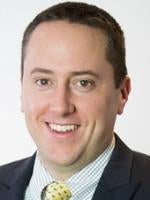Senate Commerce Committee Hearing in Hawaii
Last week, the Senate Commerce Committee held a field hearing in Honolulu, Hawaii to examine the false missile alert that occurred in January (Vol. XV, Issue 4) and explore options to improve alerts to ensure public safety. The hearing was led by Senator Brian Schatz (D-HI) and consisted of three panels. The first panel was FCC Commissioner Rosenwercel, who stated that the false missile alert in Hawaii was unacceptable and provided a list of actions the FCC can take to prevent similar problems. The second panel had representatives from the Department of Defense, the FCC, and FEMA. The third panel was Major General Arthur J. Logan of the Hawaii Emergency Management Agency, who provided background on missile alerts and the specific timeline of events regarding the false missile alert.
PSHSB Guidance on 911 Certifications
The Public Safety and Homeland Security Bureau (PSHSB) released a Public Notice providing guidance to Commercial Mobile Radio Service (CMRS) providers on compliance certification requirements and upcoming deadlines. On February 3, 2015, the Commission adopted a rule that required CMRS providers to file quarterly reports regarding location technologies used on their networks. The rule includes a progressive timeline where CMRS providers must meet particular benchmarks with the ultimate goal of, among other things, providing “dispatchable location” or latitude/longitude location within 50 meters of all wireless 911 calls. The three-year benchmark was April 3, 2018; therefore, providers have until June 4, 2018 to certify compliance.
Spectrum Horizons Pleading Cycle Published
The spectrum horizons NPRM adopted at the FCC’s February Open Meeting was also published in the Federal Register. As previously reported (Vol. XV, Issue 9), the NPRM proposes expanding access to spectrum above 95 GHz to encourage innovation of technology that can utilize the unlicensed, but usable spectrum. Comments are due May 2, 2018 and reply comments are due May 17, 2018.
Associations Request Guidance for 911 Apps
Last week, CTIA (the wireless industry’s association), APCO, and NENA submitted an ex parte filing stating that the associations met with the PSHSB to request guidance on how 911 apps should be regulated to ensure proper coordination of their use among 911 stakeholders. The parties emphasized that guidance is important to ensure that testing, trialing, or use of 911 apps do not have unintended consequences. Specifically, the parties requested guidance stating that 911 stakeholders should provide reasonable notice to the FCC, appropriate state or local public safety authorities, and wireless providers operating within the area of testing, trialing or use of 911 apps and that 911 apps and data service solution providers should disclose their testing methodology.







 />i
/>i

